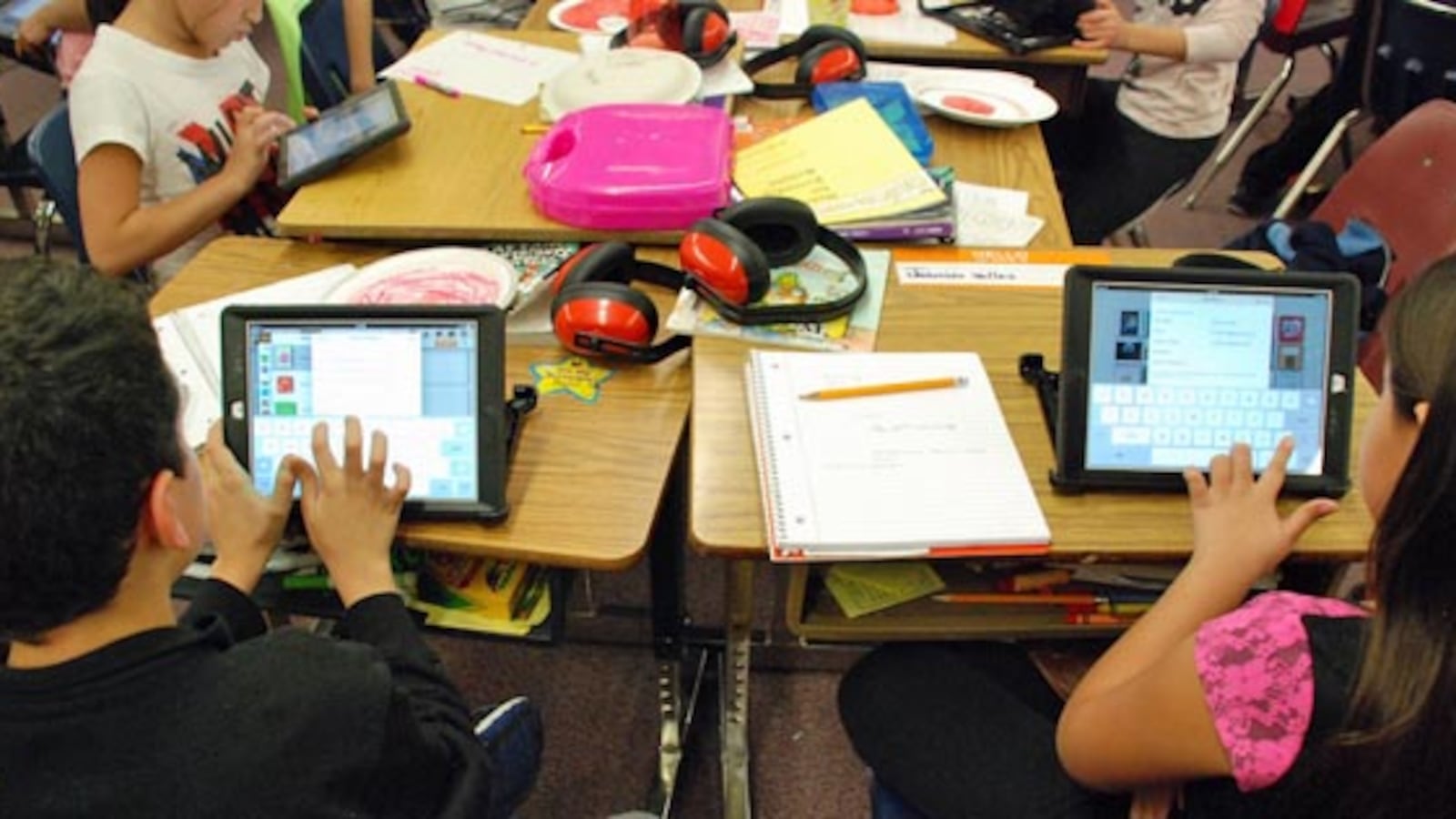Jeffco school employees can apply for a piece of a $1 million fund that will pay for an innovative idea for improving education in the district.
The school board for Jeffco Public Schools on Thursday approved shifting $1 million from the district’s rainy day fund to an innovation pool that will be used to provide grants to launch the new ideas.
The district will be open for applications as soon as Friday.
The board had reservations about the plan, which was proposed by the new schools superintendent, Jason Glass, in November, as part of a discussion about ways to encourage innovation and choice in the district. The board was concerned about how quickly the process was set to start, whether there was better use of the money, and how they might play a role in the process.
Glass conceded that the idea was an experiment and that pushing ahead so quickly might create some initial problems.
“This effort is going to be imperfect because it’s the first time that we’ve done it and we don’t really know how it’s going to turn out,” Glass said. “There are going to be problems and there are going to be things we learn from this. It’s sort of a micro experiment. We’re going to learn a lot about how to do this.”
During the November discussion, Glass had suggested one use for the innovation money: a new arts school to open in the fall to attract students to the district. He said that the money could also be used to help start up other choice schools. School board members balked, saying they were concerned that a new arts school would compete with existing arts programs in Jeffco schools. The board, which is supported by the teachers union, has been reluctant to open additional choice schools in the district, instead throwing most of their support behind the district-run schools.
Board members also expressed concerns about what they said was a rushed process for starting the fund.
The plan calls for teachers, school leaders and other district employees to apply for the money by pitching their idea and explaining its benefit to education in the district. A committee will then consider the proposals and recommend those that should be funded out of the $1 million.
Board members said they felt it was too soon to start the application process on Friday. They also questioned why the money could not also help existing district programs.
“I think a great deal of innovation is happening,” said board member Amanda Stevens.
Some board members also suggested that one of them should serve on the committee, at least to monitor the process. But Glass was adamant.
“Do you want me to run the district and be the superintendent or not?” Glass asked the board. “I can set this up and execute it, but what you’re talking about is really stepping over into management, so I caution you about that.”
Glass later said he might be open to finding another way for board members to be involved as observers, but the board president, Ron Mitchell, said he would rather have the superintendent provide thorough reports about the process. The discussion is expected to resume at a later time.
Stevens said many of the board’s questions about details and the kind of ideas that will come forth will, presumably, be answered as the process unfolds.
“Trying is the only way we get any of that information,” Stevens said.

